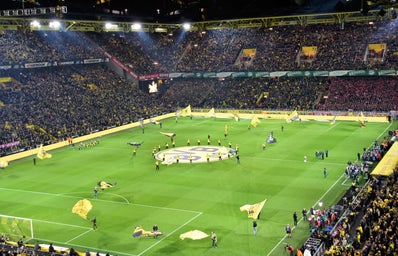Dr. Sócrates was a Brazilian athlete who changed the way football was played by fighting for freedom in a dictatorial nation.
On March 30th, Rue du Dr. Sócrates was inaugurated in Saint-Ouen, a city 9km from Paris, France. The street is a tribute to the Brazilian footballer, Sócrates Brasileiro Sampaio de Souza Vieira de Oliveira, an idol of Corinthians and a midfielder considered one of the great stars of Brazilian football in the 1980s. The reason for the choice was the values and principles defended by the athlete throughout his life, according to the mayor of Saint-Ouen, Karin Bouamrane.
Saint-Ouen will host the Brazilian Olympic delegation at the 2024 Paris Olympics. The street currently lies within the Olympic Village and is expected to become a neighborhood later. The mayor, on his X (former Twitter) profile, commented on the choice: “Between Neymar, who voted for Bolsonaro, and Raí (Sócrates’ brother), who voted for Lula, I made my choice. Between Neymar and Sócrates, I made my choice. Here, the fist is raised.”
Sócrates was an essential figure in the struggle for democracy and the restoration of the population’s rights during the military dictatorship that plagued Brazil in the second half of the 20th century. Get to know the athlete who now names a French street.
Doctor on and off the field
Sócrates Brasileiro Sampaio de Souza Vieira de Oliveira was born on February 19, 1954, in Belém, Pará. However, he was raised in Ribeirão Preto, São Paulo, which was the headquarters of his first professional football team: Botafogo de Ribeirão Preto. Sócrates was known as a “doctor” not only for the precise way he dealt with the ball on the field but also because he graduated in Medicine from the Faculty of Medicine of Ribeirão Preto, belonging to the University of São Paulo.
In 1978, Sócrates left Botafogo to enter the doors of Parque São Jorge and the club where he would make his name and mark his history in eternity: he was signed by Corinthians, where he stayed until 1984. In 1982, the athlete was called up for the Brazilian National Team that would compete in the 1982 World Cup and, despite returning home without a victory, Sócrates was considered a standout of the green and yellow team, being a starter in all matches and captain of the team. But it was in 1982 that the doctor became renowned at Corinthians, leading a democratic movement essential for the freedom of the population.
The “Democracia Corinthiana” is born
With the Brazilian military dictatorship in decline in 1982, the football director of SCCP, Adilson Monteiro Alves – who was a sociologist – decided that a movement in favor of the popular vote and democracy should begin on the field. Involved in the experience of equal opinions, Corinthians represented a quite intense political force at the time of the dictatorship.
The athletes wore shirts underneath their official jerseys with statements against the politics of the time. “I want to vote for president” and “direct elections now” were some of the messages, which became the campaign of the Corinthians football team and soon were taken up by the club’s organized fan groups.
During this period, Corinthians won the titles of the Paulistão in 1982 and 1983. In the second year, before the final against São Paulo at the Morumbi, the players took to the field with a banner that read: “Win or lose, but always with democracy.” Players like Sócrates, Casagrande, Wladimir, Biro-Biro, and Zé Maria, among many others, are remembered to this day for fighting for Corinthians as athletes and as leaders of a significant movement.
The “Democracia Corinthiana” was responsible for igniting in the population the spark that set the streets on fire with the campaign “Direct Elections Now,” demanding the return of the popular vote, denied since 1960. In 1984, the movement began to lose strength with the rejection of the Dante Oliveira amendment, which would have returned the right to vote to the people, and with Sócrates’ departure from the São Paulo team. However, the remnants of the Corinthian Democracy endure to this day. Sócrates simply celebrated his goals by raising his right wrist high, symbolizing resistance to the black-and-white movement.
Sócrates’ political fist
The “Democracia Corinthiana” had a significant impact in Brazil, immediately aligning itself with popular struggles against the dictatorship and exemplifying in an extremely popular way the importance and value of democracy. The rationale behind the movement was conscious, simple, and yet profound.
As Sócrates stated:
The idea was simple: that we all participate in collective decisions, that we try to avoid decisions coming from the top down because the best solutions are always with those who are directly involved, in any corporate or social environment. In any society, it’s like that. Those directly involved know where the problems are and what the solution is.
Sócrates
Until the end of his life, on December 4th, 2011, he used his influence gained through football to denounce injustices committed against the Brazilian people and workers worldwide. His last articles, written shortly before his death, exposed the abuses that occurred during Brazil’s preparation to host the 2014 World Cup and the 2016 Olympics, including the evictions of poor families from their properties near the construction sites.
For the former player, using public money to generate private profits at private events was a scandal, diverting wealth that should have been invested in education to benefit big capital, to the detriment of improving the quality of life for the Brazilian people.
———-
The article above was edited by Duda Kabzas.
Liked this type of content? Check Her Campus Cásper Líbero home page for more!


